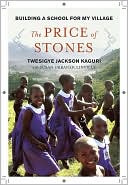When Victims Become Killers: Colonialism, Nativism, and the Genocide in Rwanda
Search in google:
"This well written and strongly argued book qualifies Mahmood Mamdani as one of the most articulate, original, and stimulating African social scientists. His interpretation of the Rwandan genocide crisis will cause considerable controversy and will prove a fresh turning point in the process of 'de-inventing' Africa."--Mamadou Diouf"This is a very impressive piece of work--a scholar's attempt to move beyond the clichés of horror towards a genuine understanding of the social dynamics which made horror possible. It's a good example of relevant, committed, and passionate scholarship."--Michael Ignatieff"Daring, knowledgeable, and wise, Mahmood Mamdani places the terrible massacres of 1994 in historical, regional, theoretical, and moral perspective. His analysis of Hutu and Tutsi as historically grounded and incessantly changing political identities not only clarifies struggles of the 1990s in Rwanda, Burundi, Uganda, and Congo but also helps identify ways of preventing future bloodshed."--Charles Tilly"Mamdani's central argument is coherent, consistent, and compelling, and his account of the Rwandan crisis is riveting from beginning to end. It is also rendered with eloquence, generosity of spirit, and political shrewdness. His uncanny ability to use scholarly methods to cast light on public life is admirable and a model for the rest of us."--Carlos Forment Economist Mr Mamdani's political settlement is not democracy, which would simply restore the majority Hutus to power, but an acceptance of the Hutu and Tutsi with political, not cultural or class affiliations. He recommends a broad-based constitutional settlement that includes everyone prepared to give up violence whatever their ideology. More Burke than Hobbes, this solution is based on the knowledge that the question "who is to be master?" will be answered by death, unless both sides are prepared to cede power and answer instead: everyone.
List of AbbreviationsPreface and AcknowledgmentsIntroduction: Thinking about Genocide31Defining the Crisis of Postcolonial Citizenship: Settler and Native as Political Identities192The Origins of Hutu and Tutsi413The Racialization of the Hutu/Tutsi Difference under Colonialism764The "Social Revolution" of 19591035The Second Republic: Redefining Tutsi from Race to Ethnicity1326The Politics of Indigeneity in Uganda: Background to the RPF Invasion1597The Civil War and the Genocide1858Tutsi Power in Rwanda and the Citizenship Crisis in Eastern Congo234Conclusion: Political Reform after Genocide264Notes283Bibliography343Index357








